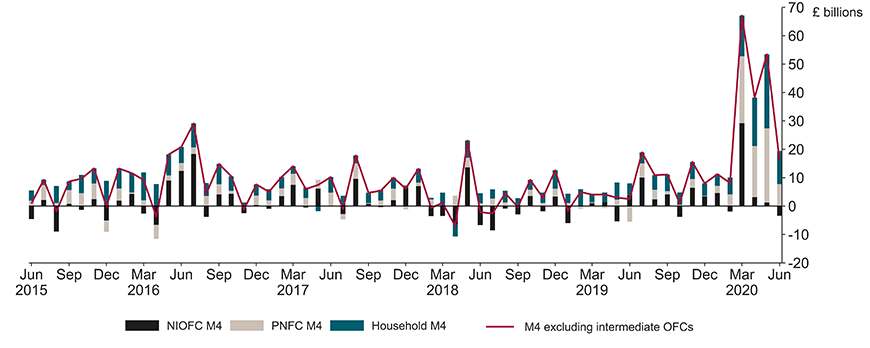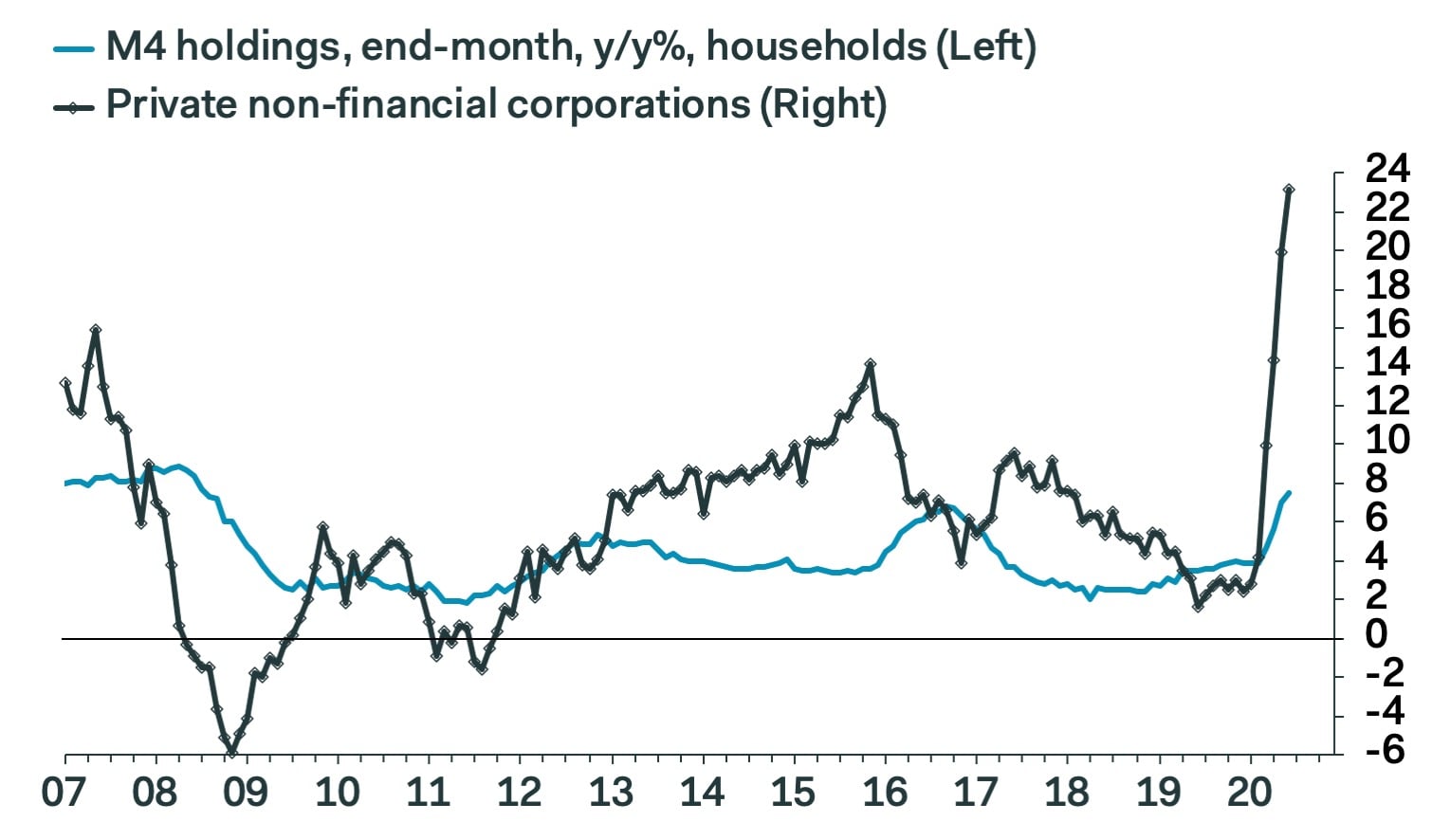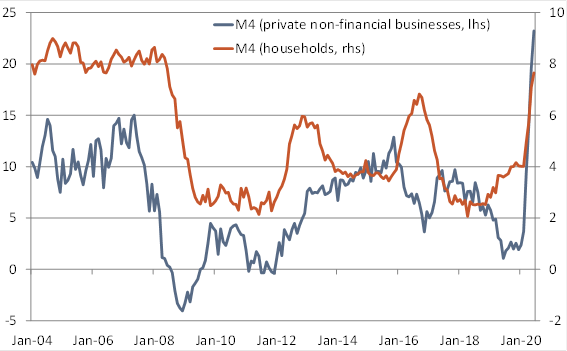Mortgage Approvals Quadruple, Firms Accumulate Cash at Record Rates: Bank of England Data
- Mortgage approvals quadruple
- Companies amass piles of cash at record rates
- Policy makers have gotten it right when compared to 2008 says economist

Image © Adobe Stock
House purchase mortgage approvals rose to 40.0K in June according to Bank of England data, which is a print that comes in above the consensus expectation for 35.0K while making for a significant recovery from the record low of 9.3K recorded in May.
The Bank of England's monthly lending data also showed that while households and businesses were starting to spend again, their desire to hoard cash in the nations banks remains high, indeed since March an additional £175BN was deposited with banks, more than the cumulative total in most years.
Nevertheless, the mortgage figures at least suggest an economy that is finding its feet once more.
"Yet more signs that the wider housing market has bounced back from pandemic paralysis with mortgage approvals now sitting at more than four times the levels seen in May," says Hugh Wade-Jones, managing director of Enness Global Mortgages. "This is largely due to the influx of buyer demand that hit the market following the easing of lockdown restrictions and demonstrates a market on its way back to good health."
Bank of England lending data also showed the rebound in activity in the housing market means household borrowing increased by £1.8BN in June, which makes for the first rise in credit demand in months after they paid down debt in both April and May.
But consumer credit fell again, this time by £0.1BN in June which is a smaller decline than the £2.0BN decline markets were expecting and is notably less than May's £4.5BN decline with the average of the preceding three months sitting at a sizeable £3.1BN.
"This supports other evidence that households have started to spend again," says Paul Dales, Chief UK Economist at Capital Economics.
Data also showed businesses added to their cash reserves at record rates, with the broad money—M4—holdings of private non-financial corporations rising 23.2% year-on-year in June.
"The increase partly reflects the government’s decision to allow all firms to defer paying VAT on sales generated in Q2 until the end of this fiscal year, as well as a sharp reduction in rent payments," says Samuel Tombs, UK Economist at Pantheon Macroeconomics.
Image courtesy of Pantheon Macroeconomics
Aiding the surge in cash stockpiles held by UK businesses are the hefty loans and grants being offered by the government, with the Bank of England's data showing borrowing from all external sources rose by a further £10.7BN in June, taking the increase in the second quarter to £37.6BN.
Bank lending to SMEs rose by a record £17.4BN in June, thanks to the Bounce Back Loans Scheme says Tombs, which has given lenders a 100% state guarantee on small business loans up to £50K.
According to one economist, there is an important message being relayed by the data, and that is policy makers have learnt from the mistakes of 2008/2009 by providing aggressive and timely support to businesses and households.
Kallum Pickering, Senior Economist at Berenberg Bank notes that deposits by UK households and businesses surged in March when the UK entered lockdown and economic activity collapsed. But, he also notes this contrasts with the experience during the financial crisis: where growth in M4 holdings for households and businesses surged from March 2020 onwards, growth in household deposits slowed dramatically in 2008/09 while businesses deposits contracted sharply.
"The big difference between the experience of recent months and the great financial crisis is simple – policymakers made the right choices this time around. By being suitably aggressive from March onwards, policymakers prevented a cash-flow crunch from developing into a financial crisis," says Pickering.
Looking ahead, Tombs says businesses are likely to maintain their desire to sit on cash: "firms will hold on to cash until early next year, when they will have to start repaying loans taken out in Q2 and will have to pay VAT on sales in Q2 2020 and well as on current sales. Uncertainty about a second wave of the virus and its financial impact also will persuade firms to maintain high cash balances in the second half of this year, rather than go on a spending spree.
"These figures suggest that both business and household borrowing rates are moving back towards normal. But the legacy, of course, is that businesses are now lumbered with much more debt," says Dales.






